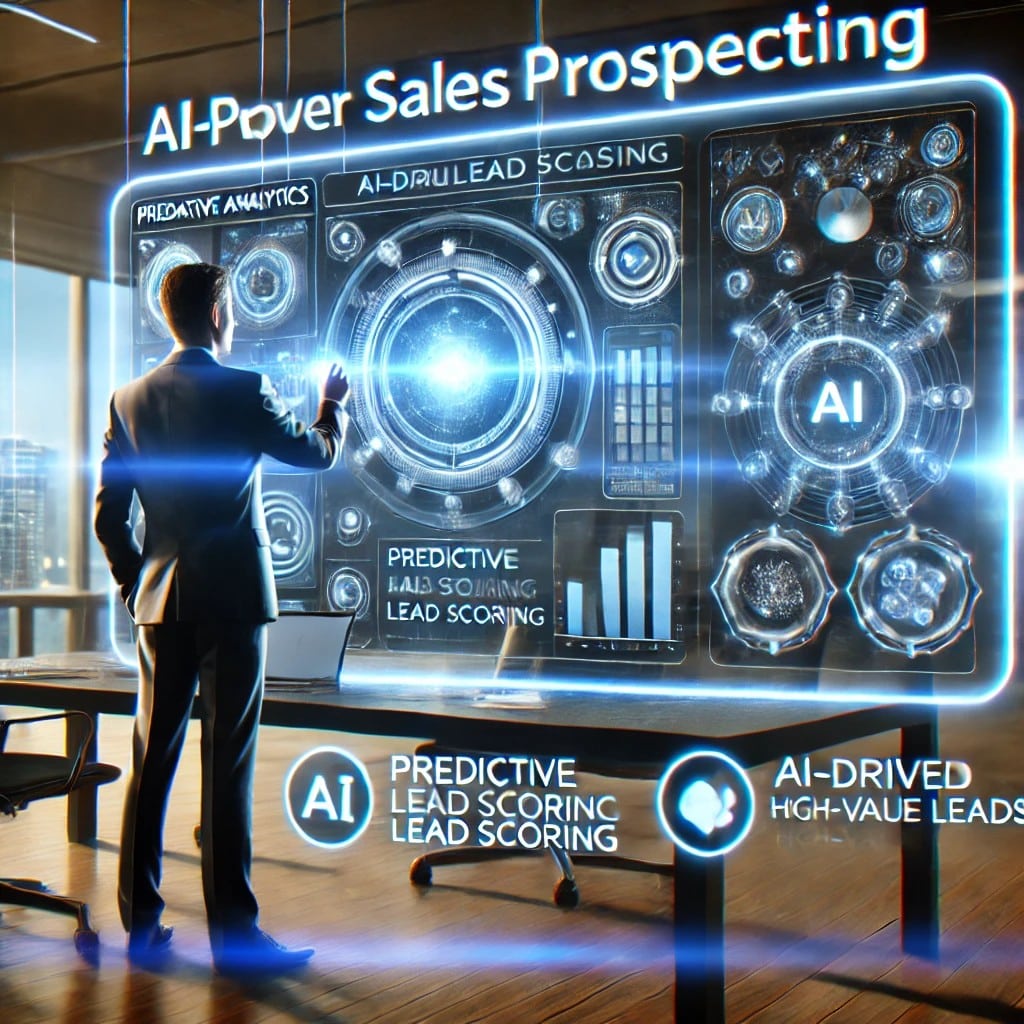Artificial Intelligence (AI) has revolutionized various industries, including B2B sales and marketing. In today’s digital age, the integration of AI systems in sales and marketing practices has become increasingly prevalent. However, with great power of AI comes great responsibility, necessitating a thorough exploration of the ethical considerations surrounding its use.
The Role of AI in B2B Sales
AI has reshaped the landscape of B2B sales by enhancing efficiency and productivity. Sales teams can leverage AI tools to streamline processes, analyze vast amounts of data, and predict customer behavior, leading to more informed decision-making and improved outcomes.
Benefits of AI Integration in Sales Teams
By integrating AI technologies, sales teams can effectively prioritize leads, personalize interactions, and optimize sales strategies. This not only boosts productivity but also enhances customer satisfaction and retention rates.
Ethical Considerations in Implementing AI in Sales Processes
While AI brings numerous advantages, it also raises ethical concerns, such as bias in decision-making algorithms and the potential loss of human touch in client interactions. It is crucial for organizations to uphold ethical standards when leveraging AI in sales processes.
Best Practices for Ethical AI Use in B2B Sales
To use AI ethically in sales, organizations must ensure transparency, accountability, and fairness in their AI systems. This involves monitoring AI algorithms for biases, providing explanations for AI-driven decisions, and offering avenues for human intervention when necessary.
Ethics of AI in Marketing
Marketers have embraced AI-powered tools to streamline marketing practices, analyze consumer data, and deliver personalized experiences. However, the ethical implications of AI in marketing cannot be overlooked, requiring a balanced approach that prioritizes consumer trust and transparency.
Ensuring Transparency in AI-Powered Marketing
Transparency is key in AI-driven marketing campaigns to build trust with consumers. Marketers should disclose the use of AI technologies and how data is collected, stored, and utilized to ensure ethical practices and compliance with data protection regulations.
Addressing Ethical Concerns in AI-Driven Campaigns
Marketers must address ethical concerns related to data privacy, targeted advertising, and the potential manipulation of consumer behavior through AI algorithms. Upholding ethical standards and respecting consumer privacy is essential in AI-driven marketing strategies.
Building Consumer Trust through Ethical AI Practices
By prioritizing ethical AI practices, marketers can foster trust with consumers, enhance brand reputation, and cultivate long-term relationships. Ethically sound marketing practices demonstrate integrity and respect for consumer rights, ultimately driving brand loyalty and engagement.
Responsible AI Use in B2B Marketing
Responsible AI practices are imperative in B2B marketing to ensure ethical use of AI technologies and protect sensitive data. By implementing ethical guidelines and monitoring AI algorithms, organizations can mitigate risks and uphold ethical standards in their marketing efforts.
Implementing Responsible AI Practices in Marketing Technology
Organizations should prioritize the ethical use of AI technologies by implementing robust data protection measures, ensuring data privacy compliance, and promoting responsible data practices throughout the marketing technology ecosystem.
Ethical Issues Surrounding AI in B2B Marketing
Ethical issues such as the use of customer data, algorithmic bias, and potential privacy breaches pose challenges in AI-powered B2B marketing. Addressing these ethical dilemmas requires a comprehensive approach that considers the impact of AI on stakeholders and society as a whole.
Data Protection and AI Ethics in B2B Sales and Marketing
Ensuring data protection and upholding AI ethics are paramount in B2B sales and marketing. Organizations must establish clear policies, secure data storage systems, and conduct regular audits to safeguard sensitive information and maintain ethical standards in their AI initiatives.
Challenges of Ethical AI Implementation
Despite the transformative potential of AI in sales and marketing, ethical challenges persist in its implementation. Navigating ethical dilemmas, addressing bias in AI algorithms, and ensuring the ethical use of generative AI present complex hurdles that organizations must overcome.
Navigating the Ethical Dilemmas of AI-Powered Sales Processes
Organizations must navigate ethical dilemmas related to AI automation, human oversight, and decision-making processes to uphold ethical standards and meet consumer expectations. Striking a balance between automation and human intervention is essential for ethical AI implementation in sales.
Addressing Bias and Ethical Standards in AI Algorithms
AI algorithms can exhibit biases based on the data they are trained on, leading to discriminatory outcomes and ethical concerns. Addressing bias in AI algorithms through data validation, diverse training datasets, and algorithmic transparency is crucial for responsible AI use in marketing technology.
Ensuring Ethical Use of Generative AI in Marketing Technology
Generative AI technologies, such as content creation tools, present unique ethical challenges regarding attribution, authenticity, and intellectual property rights. Marketers must adhere to ethical guidelines, acknowledge AI-generated content, and ensure transparency in their use of generative AI to maintain ethical standards.
The Future of AI in B2B Sales and Marketing
As AI becomes increasingly integrated into sales and marketing practices, anticipating and addressing ethical considerations is crucial for fostering trust and sustainability. By proactively addressing ethical challenges and embracing responsible AI practices, organizations can harness the full potential of AI technology by 2024 and beyond.
Anticipating Ethical Considerations in AI Technology by 2024
Relevant stakeholders must anticipate ethical considerations arising from advancements in AI technology, such as deep learning, natural language processing, and predictive analytics. By proactively addressing ethical concerns, organizations can prepare for ethical challenges that may emerge in the near future.
Overcoming Ethical Challenges in Implementing AI-Driven Automation
Overcoming ethical challenges in implementing AI-driven automation requires a multidimensional approach that considers the societal impact, regulatory landscape, and ethical implications of AI technologies. Organizations must prioritize ethical decision-making and accountability to navigate these challenges successfully.
Guiding Principles for Responsible and Ethical AI in Sales and Marketing
Establishing guiding principles for responsible and ethical AI use in sales and marketing is essential for promoting transparency, fairness, and accountability. By adhering to ethical standards, organizations can build trust with consumers, differentiate their brand, and drive sustainable growth in the evolving landscape of AI-driven sales and marketing.
Q: How can marketers ensure they are using AI ethically in B2B sales and marketing?
A: Marketers can ensure they are using AI ethically by training AI models on diverse datasets, ensuring transparency and accountability in AI decision-making, and obtaining explicit consent from consumers for data usage.
Q: What are some ethical marketing practices when implementing AI in B2B sales and marketing?
A: Ethical marketing practices include maintaining transparency around AI solutions, respecting consumer privacy by following regulations like GDPR, and prioritizing inclusivity and personalized marketing while building ethical AI models.
Q: How can B2B salesforce benefit from exploring how AI is used in marketing operations?
A: Exploring how AI is used in marketing operations can provide sales teams with unprecedented insights into consumer behavior, enabling them to tailor sales strategies more effectively and drive better business outcomes.
Q: What is the significance of exploring the intersection of AI and marketing automation in B2B sales and marketing?
A: Exploring the intersection of AI and marketing automation allows businesses to streamline processes, improve efficiency, and deliver more personalized experiences to customers, ultimately enhancing the overall marketing and sales performance.
Q: How can businesses ensure responsible AI use in B2B sales and marketing?
A: Businesses can ensure responsible AI use by incorporating ethics as a core component of AI development, ensuring AI decisions align with ethical guidelines, and monitoring AI systems to maintain ethical standards in marketing and sales practices.



